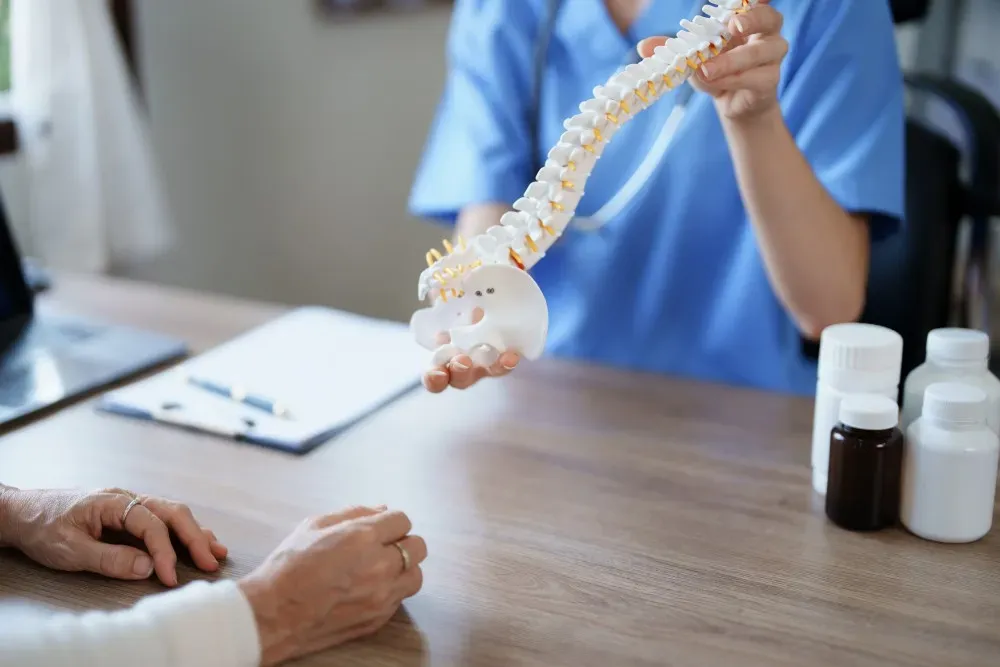Neurosurgery & Orthopedic Surgeons in Jacksonville

Why Pain Sustained from an Auto Accident Is Often Delayed
Motor vehicle accidents can cause significant injury. However, it’s not uncommon to feel fine immediately afterward. You may not develop muscle, joint, or ligament pain for hours, days, or even weeks. Learn the facts about delayed pain.
Delayed pain may seem like an odd phenomenon, but it’s relatively common. For instance, pain from a whiplash injury may not develop for 12 hours after the accident. You may not feel the effects of a muscle strain for days, and it could take years to experience the painful degenerative complications of a joint injury.
Our Integrity Spine & Orthopedics team in Jacksonville, Florida specializes in conditions that affect the spine, muscles, and joints, including motor vehicle accident injuries. Whether your pain begins immediately or doesn’t start for hours, days, or weeks, we can help.
We’re happy to explain the reasons for delayed pain following a motor vehicle accident.
1. Adrenaline rush
During stressful events, the body releases adrenaline, a hormone that prepares the body to either fight or flee. This “fight-or-flight” response increases heart rate, tenses muscles, and heightens our overall alertness.
Adrenaline also acts as a natural painkiller. The fear and stress encountered during and immediately after an auto accident can lead to a surge in adrenaline, which may temporarily mask pain.
2. Inflammatory response
Injury to muscles, tendons, ligaments, and joints might not cause immediate pain. However, these types of injuries cause a natural inflammatory response associated with the body’s natural healing system. Swelling develops as inflammation increases, causing pain in the injured tissue.
3. Micro-tears in muscles, tendons, and ligaments
Micro-tears in muscles, tendons, and ligaments, commonly sustained during car accidents, may not cause immediate discomfort. However, inflammation and pain build when the body recognizes these minor injuries. This reaction also explains the delayed onset of muscle tenderness or soreness one to two days after strenuous exercise.
4. The brain’s protective mechanism
The human brain sometimes focuses on the most critical injuries during traumatic events. Minor pains or discomforts are “pushed aside” as the brain centers on more pressing issues, like ensuring you’re safe and out of danger. Once the immediate threat subsides, the brain processes other sensations, including pain.
5. Delayed symptoms of internal injuries
Some internal injuries, like mild traumatic brain injuries or internal bleeding, might not show immediate symptoms. Awareness of any physical or cognitive changes after an accident is crucial, as these could indicate more severe, underlying issues.
6. Psychological impact
Physical injuries aren’t the only outcome of accidents. Individuals might also have post-traumatic stress disorder (PTSD) or other psychological conditions afterward. Such emotional and mental strains can manifest as physical symptoms, including headaches, fatigue, and even muscle pain, days or weeks after the accident.
What to do after an accident
The Integrity Spine & Orthopedics team recommends you seek medical attention after an auto accident, even if you feel fine initially. Our comprehensive medical examination can identify potential issues and ensure that any injuries, evident or not, are treated promptly.
Schedule an evaluation today by calling our office or requesting an appointment online.




